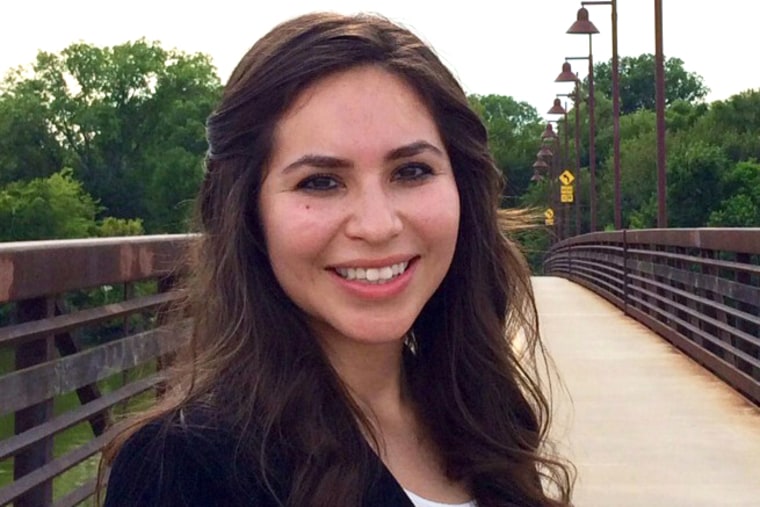Ana Zamora has never been to the nation's capital. She's never visited the sights or toured the monuments defining the bedrock of America's history. She's lived in Dallas, Texas, nearly her entire life — it's the only home that she's ever known.
But on Tuesday night, Ana will be sitting just seats away from the first family of the United States for one of the most high-profile addresses to the American public that President Obama will give all year: The State of the Union.
As an honored guest for a box-seat at the coveted event, she is the human face for the immigration debate and shows that immigrants like her are not defined by their undocumented status. "It’s definitely the hardships and challenges that I’ve been able to overcome more than any laws that have been broken," she says.
RELATED: Communities reframe message to welcome immigrant kids
Ana is a testament to why immigrants brought to the U.S. as children are known as DREAMers. In May, she will be first in her family to graduate from college, majoring in business administration with minor in hospitality at Northwood University. Not only is she finishing up her secondary education as a wide-eyed 21-year-old, but once she walks across the stage to receive her diploma, she’ll be doing so debt-free. She worked part- to full-time her entire way through college, and with the help of scholarships and a doting mother who always pressed her to excel to school, she is grasping onto a future that not every millennial American citizen claims.
“I grew up in a low-income community. I am a Latina. I am a woman. At some point, I didn’t have a status in this county and yet I was able to graduate from high school. I’m about to graduate from college,” Ana said. “I have broken statistics that others maybe have not. I find it a huge jump from where my parents were when they first got here to where I stand now.”
Ana considers America as her only home. She was just a 1-year-old when her parents brought her to the U.S. from Mexico for the same reason many families move — seeking a better life for their children. But striving for the American Dream didn't come without major obstacles right from the start for the Zamoras.
Ana’s little brother, born in the U.S., was just a toddler when he was diagnosed with leukemia. When Ana’s mother wasn’t at her brother’s bedside at the hospital, she was holding down two jobs, including some night shifts. Her dad worked in landscaping and agriculture, with workdays that started before dawn and went late into the night. The heads of the household had three young mouths to feed, and the medical bills were stacking up. Their home in Dallas hosted a rotating cast of roommates — other families, aunts, uncles and cousins — just to pay rent and make ends meet.
“I was taking care of them as well as taking care of me,” Ana recalls of her childhood relationship with her siblings. “I just felt more responsible being the oldest and with my parents not always being there. I was mature for a very young age.”
"I don’t have to worry on a daily basis what will happen to me for now."'
Ana’s road to the White House started with a letter. She considers herself by no means politically active, but in September of last year, that changed. She wrote Obama a letter — it was “pretty extensive,” she said — expressing her gratitude for the DACA program, short for Deferred Action for Childhood Arrivals. For the first time, she could get a driver’s license and find a better job within her major to build her résumé. More crucially, she couldn’t be deported.
She’s not the only one. Nearly 600,000 DREAMers like Ana have qualified for DACA since Obama first introduced the initiative in 2012. And later this spring, a new flurry of executive actions will open those same opportunities to millions more. In sum, Obama’s unilateral actions will be about a million short of benefiting half of all undocumented immigrants who currently live in the United States — Ana's parents, included.
For Ana, the executive actions mean much more than just statistics.
“The program adds to who I am, yet it is not what defines me,” Ana said. “It’s truly life changing, it’s a blessing. I don’t have to worry on a daily basis what will happen to me for now.”
